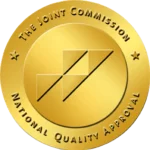What Are the Three Stages of Relapse?
When talking about substance addiction, the word relapse means returning to using drugs and/or alcohol, thereby losing the state of abstinence or sobriety.
Relapse actually begins quite a bit before the moment of using substances again. In fact, there are three stages: emotional relapse, mental relapse, and physical relapse, with the final one referring to substance use.
Relapses are signaled ahead of time by clear signs that, if noticed in time, can be helpful for correcting a self-destructive course before it’s too late.
Typically once the substance has started again, then it is very difficult to reset to sobriety. If you catch a relapse before it turns into substance use, however, when it is still in the emotional and mental stages that precede a return to substance use, you have a decent chance of turning it around.
Recognizing the state of being that precedes a return to substance use is very helpful. Your relapse prevention plan will include a default protocol for what to do when you or a loved one notices that you’re on the road to relapse.
Emotional Relapse
Emotional relapse is the first and most subtle sign of a relapse. It can be hard to detect because it comes in the form of feelings. Emotional relapse is characterized by a return to old, habitual feeling states, like depression, undue dissatisfaction, irritability, and anxiety.
Being in a state of stress as a semi-permanent state is usually part of an emotional relapse, as is a kind of general crankiness and sense of victimhood. When we feel angry and disempowered about our lives, as well as just generally not as bright and happy, this is a danger zone for early relapse.
On the other hand, women are different, and for some of us, an “up” mood, in which we feel on top of the world, reckless and invincible, can also be a sign of returning to previous states of mind that are connected to our substance use.
The clearest signal of an emotional relapse is when people withdraw from the recovery community and addiction professionals, and avoid admitting the truth of what they’re thinking and feeling. When we begin to hide and suppress emotion, that is a sign that the roots of addiction are taking hold again.
Mental Relapse
Mental relapse is noticeable in the thoughts and beliefs, as well as the things we start saying out loud. During the mental relapse stage, we may begin to think glamorized, nostalgic thoughts about our previous use, and the madness of the addiction may return in the form of thoughts like “this one substance is an exception, I can use this substance without trouble”, and also forgetting how bad it really was in the height of our addiction.
A common addiction-madness-based thought is the belief that surely now, after all this time being sober, we can handle the substance and use it responsibly. This is not true, this is the addiction trying to lure us back in.
As with emotional relapse, it is a very bad sign when we find ourselves avoiding sharing the thoughts we’re thinking out loud with people we associate with our recovery, such as our sponsors, therapists, or long-timers in the program. This is a sign of the addict withholding truth from themselves and others because she is afraid of being seen and called out, therefore stopping from gaining momentum within themselves again.
Physical Relapse
Finally, there is the stage of relapse we call the physical stage, which is the moment when sobriety is fully lost and one loses abstinence. This is the most difficult stage to circumvent once it has taken root, though it is possible, so do not give up hope if this has happened to you.
Your relapse prevention plan should address all of these stages and potential realities, so that if it happens that you encounter any of these stages, you and your loved ones know exactly what steps to follow.

 Community is the most curative factor for women in recovery. When we are in isolation, we are more vulnerable to the addiction-madness speaking to us, and us not recognizing it for what it is.
Community is the most curative factor for women in recovery. When we are in isolation, we are more vulnerable to the addiction-madness speaking to us, and us not recognizing it for what it is.




